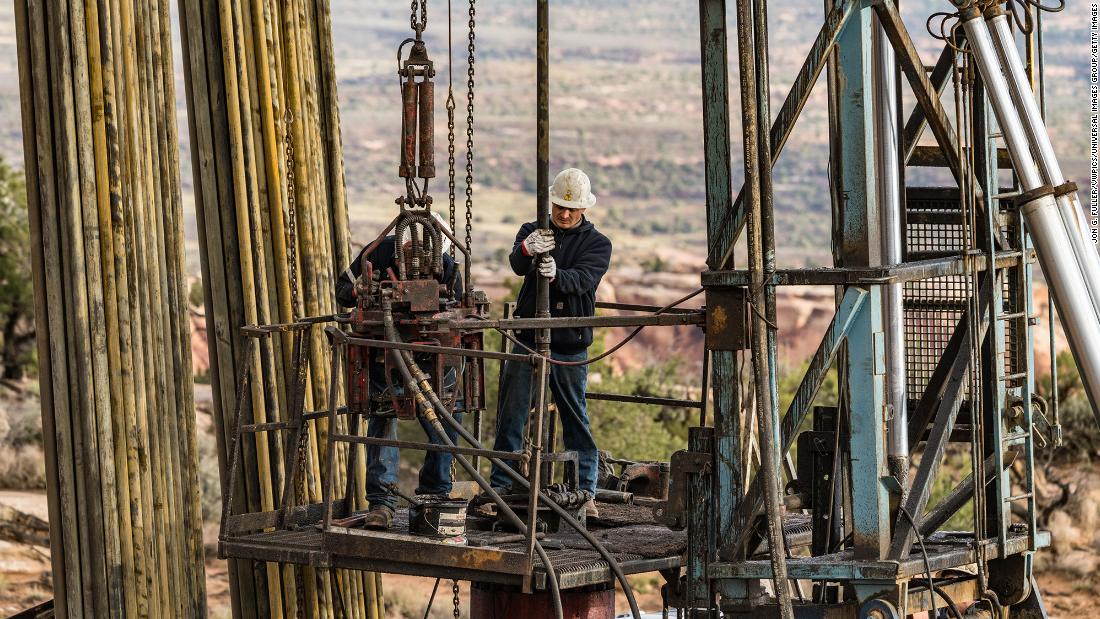Oil price rises above US$100 a barrel 0:49
New York (CNN Business) --
The Russian invasion of Ukraine has pushed oil futures above $100 a barrel for the first time since 2014 and will likely cause gasoline to rise to $4 a gallon in large part. from the United States.
But it won't be a big drag on the country's economic growth.
Economists project that, at most, the nation's Gross Domestic Product, the broadest measure of its economic activity, will have a few tenths of a percentage point less growth rate.
With an economy growing very strongly, last year's GDP had its best growth since 1984, the United States is expected to withstand such price increases well, even if drivers complain.
How could a war between Russia and Ukraine impact the Latin American economy?
The upsides and downsides of rising oil prices for the US economy are close to balancing out, said Paul Ashworth, chief North American economist at Capital Economics.
"While we know it will reduce real household spending [on other goods], there will be a positive impact on domestic oil production," Ashworth said.
But he said the rise in oil prices in the past two years has done less than might be expected to increase oil production, investment spending and hiring by US oil companies.
This is in part because investors and banks have been reluctant to pour more money into fossil fuel companies.
Heartbreaking images: this was the large-scale attack on Ukraine 3:55
"We've already seen oil go from $40 a barrel to $90 with a lukewarm response from shale producers," Ashworth said.
"So I expect the positive impact on production to be less than the negative impact on other household spending."
Global oil prices soar above $100 and could go much higher
Goldman Sachs also expects a modest impact on economic growth from higher oil prices, equivalent to one-tenth of a percentage point of growth for every $10 increase in the price of a barrel of oil.
advertising
The rally and fighting in Ukraine could put to rest rumors that the Federal Reserve will raise interest rates by half a percentage point at its next meeting, instead of the traditional quarter-point hike.
The Fed's geopolitical risk index is at the highest point since the Iraq war in 2003. If the Fed is more cautious about raising rates, that could cushion the blow that rising oil prices oil and gas could spell for growth.
"We suspect that some participants will see [geopolitical risk caused by the war] as a compelling reason not to raise rates by 50 basis points in March," said a note from Goldman Sachs economists on Wednesday.
At the same time, Goldman analysts noted that the hit to US GDP growth could be somewhat larger if geopolitical risk increases business uncertainty.
5 keys to understand the war Russia vs.
Ukraine 1:04
a history lesson
This anticipated shock to the US economy has not always been the case.
The rise in oil prices that followed the Arab embargo in 1973 was one of the main causes of the 1973-74 recession.
And Iraq's invasion of Kuwait in August 1990 almost doubled the price of oil in the following two months to $40.42 a barrel, or about $85 today.
It was a key factor in the recession of 1990-1991.
But the United States was much more dependent on imported oil then than it is today.
Beyond the question of the origin of oil at that time, the country was much more dependent on oil and other energy sources in general.
As the US economy has transitioned from a manufacturing economy to a service economy, the amount of energy consumed per dollar of GDP has fallen 60% from 1975 and 45% from 1990, even taking into account inflation since then.
How much oil does the United States import from Russia?
When oil hit $100 for the first time in February 2008, it didn't trigger a recession, in part because the US economy was already well into the Great Recession, a severe recession triggered by the bursting of the US housing bubble a few years ago. before and the shock waves that went through the US and world financial system.
The next time oil hit $100 a barrel was in 2011, when it briefly topped that mark.
It did it again in early 2012. But it didn't cause a recession.
Oil's last run at $100, before this one, began in July 2013, and oil prices hovered near or above that mark for just over a year.
But the nation also avoided a recession then.
GDP turned negative in the first quarter of 2014, but that was attributed to many other factors, including particularly bad winter weather that kept many consumers indoors.
And the economy rebounded strongly in the second quarter of 2014, even though oil prices didn't fall below $100 for good until late July.
oil prices









